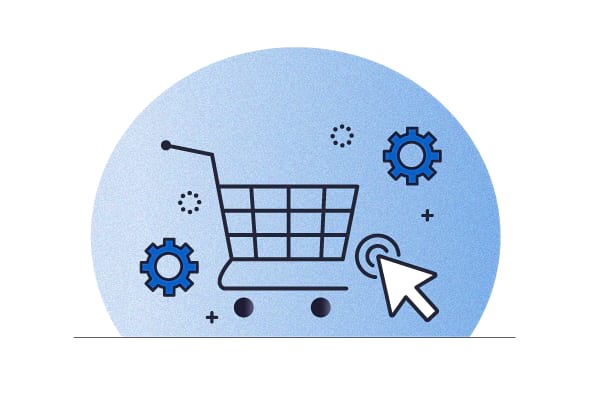Did you know that 31% of consumers have at least one retail subscription service? Also, the subscription cancel culture is visibly fading — subscribers intend to keep their subscriptions.
Apply this to your eCommerce business, and you’ll see that you can convert every third customer that you sell to into a “subscriber.” On average, a subscriber spends about $37.73 on an eCommerce subscription each month and has about five ongoing subscriptions at any time. So you can imagine the potential value you can generate if you only start focusing on getting subscribers rather than just customers.
If you run your eCommerce business via WooCommerce, setting up Amazon-like subscription schemes for your products is much easier than you might think. Just add Autoship Cloud to your selling mix. Take the plugin’s free trial for a spin. Before we see that and more on product subscriptions, let’s quickly go over McKinsey’s key observations.
So according to a McKinsey survey:
- 31% of eCommerce subscriptions are for replenishment products. Here, customers look to get their essential supplies shipped automatically at a set frequency. Example: Dollar Shave Club for men’s grooming supplies.
- The majority of retail subscriptions — 55% — are for curated bundles (or “boxes”). Here, consumers are looking for variety and an element of surprise as (often) they don’t know what new products will get shipped with their monthly subscriptions. Think Birchbox for beauty products, Stitch Fix for clothing, or FabFitFun for fashion, fitness, beauty, wellness, and more.
- And 13% of eCommerce subscription sales are for access. Consumers subscribe to a store to access exclusive perks like discounted pricing, free shipping, or cashback. Access subscriptions also unlock access to products that only sell as subscriptions and aren’t available in physical retail outlets. ThriveMarket, for instance.
A lot of eCommerce businesses can actually pivot to the subscription business model or at least add subscriptions to their sales mix. In this article, we’ll look at the top 10 product subscriptions that online consumers love subscribing to. We’ll also see how you can set up product subscriptions on your online store with QPilot, a leading ecommerce subscription engine.
Here goes.
The top-selling eCommerce product subscriptions
- Fashion
- Food, beverages, and mealkits/mealboxes
- Health and fitness
- Wellness
- Pet products
- Plants and flowers
- Collectibles
- Hobbies
- Cannabis
- B2B subscriptions
Upgrade to Autoship
When it comes to setting up subscription products on WooCommerce, Autoship Cloud is the only plugin you need.
Fashion
In 2020, about one-third (29.5%) of fashion product sales happened online.
Not only is fashion the most popular online shopping category (worldwide), but it’s also the highest revenue-generating eCommerce vertical. Fashion eCommerce — or broadly the online sales of apparel, footwear, and accessories — drives about 110.6 billion in the U.S. alone and is set to hit the 150+ billion mark by 2024.
Customers turn to fashion subscriptions for a host of reasons: cashback, free shipping, and exclusive discounts. And, of course, the thrill of owning a diverse wardrobe is a reward in itself.
When it comes to fashion product subscriptions, subscribers love curated boxes (where they get hand-picked items based on their style profiles). Access subscriptions are popular, too — thanks to the perks they offer. Besides, quite a few brands now only sell exclusively through subscriptions.
Food, beverages, and mealkits/mealboxes
Mealkit product subscriptions saw explosive growth during the pandemic as people were forced to eat at home. From cooking kits to semi-prepared, heat-and-eat, and ready-to-eat meal boxes, many consumer demographics showed an increasing appetite for all kinds of mealkits. Thanks to the growing preference for homemade meals, the meal kit delivery market is set to grow to $27.33 billion by 2027.
While consumers have their favorites in this niche already (like Hello Fresh and Blue Apron), it’s still full of potential. About 50% of (US) eCommerce subscribers are, in fact, open to considering new food/beverage subscription options.
In Britain, on the other hand, about 20% of eCommerce subscribers (in a 1000-member study) shared that they owned a food and drink subscription, while another 55% said they were interested in them.
Food and beverage product subscriptions work well with all subscription models as subscribers are looking for everything from convenience and delight to discounts! This niche is profitable too. According to our research, the average subscription order value in the food and beverage industry is $38, and these subscriptions tend to have the highest average lifetime value (at $319). Also, these subscriptions run the longest, spanning over 270 days, on average.
Health and fitness
Product subscriptions in the health and fitness niche are the second most popular subscriptions after the food and beverages category. In one survey of American eCommerce subscribers, about half of the participants (44%) expressed interest in subscribing to such a service.
Health and fitness product subscriptions ship with bundles catering to their subscribers’ physical, mental, and emotional health and fitness. This niche also overlaps with the wellness vertical as many health and fitness product bundles ship with wellness products.
Here are a few products that health and fitness subscriptions offer:
- Vitamins
- Supplements
- Essential oils
- Personal hygiene products
- Flavored water
- Protein drinks
- Wellness products like affirmation cards, journals, and candles
- Selfcare products like cleansers, masks, scrubs, mists, creams, and more.
Wellness
Wellness product subscriptions help subscribers with their sleep, mindfulness, nutrition, fitness, appearance, and health. Not only are the majority of consumers looking to spend more on wellbeing, but they’re also spending a significant portion of their budget (70%) on products rather than services.
Here’s a breakdown of spending trends across each of these six wellness dimensions:
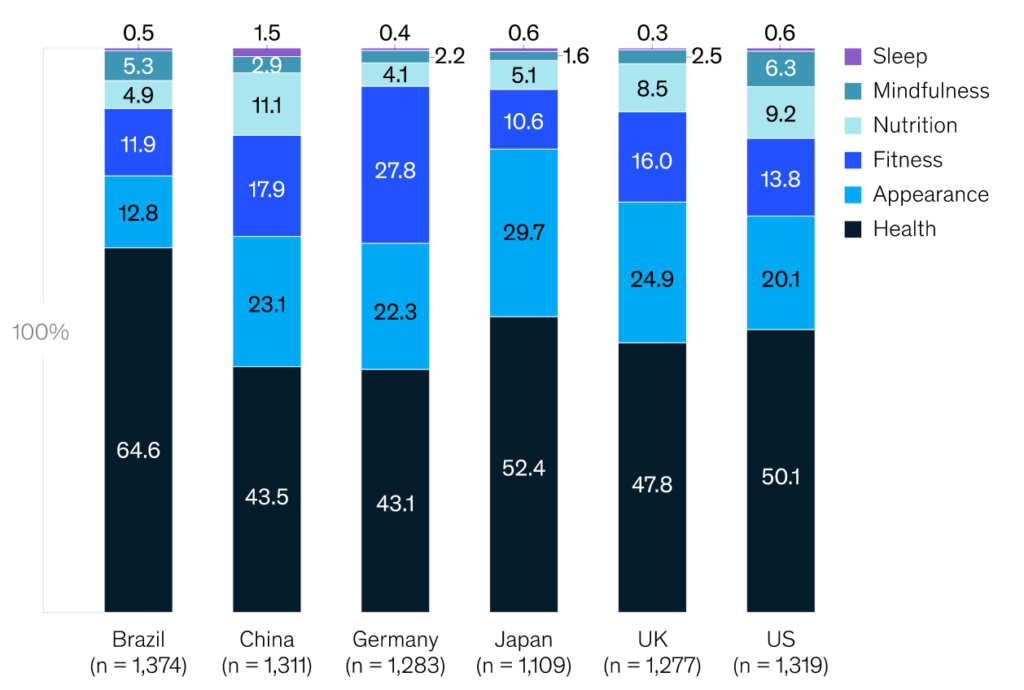
While this 1.5 trillion dollar niche overlaps with the health and fitness niche, it deserves a separate listing. A lot of product subscriptions come under the ambit of wellness subscriptions. These are broadly product subscriptions around:
- Selfcare
- Mood-boosting
- Stress-relieving
- Healthy eating
- Yoga
- Grooming
- Beauty, skin, and hair care
And more!
Beauty boxes like Boxycharm, Ipsy, Birchbox fall into this general broader wellness category.
Pet products
When it comes to pet product subscriptions, pet food tops the list (comprising about 21% of pet product subscriptions). Pet treats follow closely at 15%, whereas non-food pet supplies and medicines make the next most popular options, with each making up about 8-10% of the subscription sales.
According to our data (in line with market trends), pet supplies subscriptions see the maximum autoshipping deliveries.
The following chart shows what pet owners typically buy:
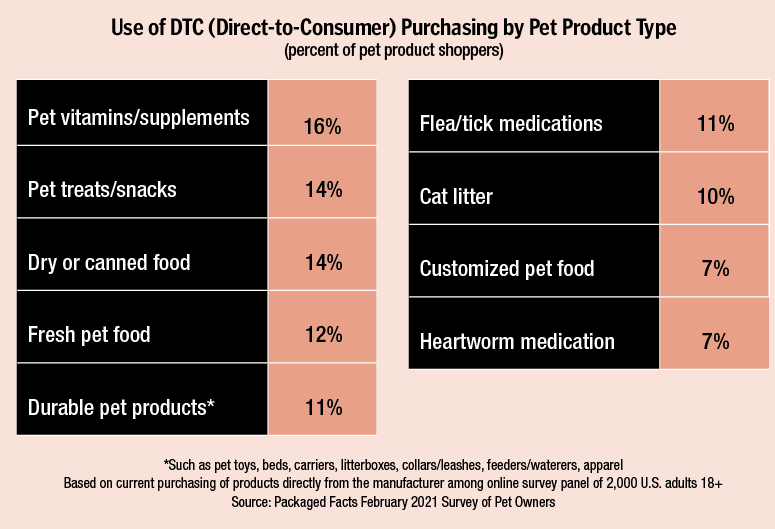
Plants and Flowers
Flowers and plants are also emerging retail subscription markets. Like most other product subscriptions on this list, both of these saw increased demand during the pandemic.
You’d be surprised to know that flower subscription companies increased their sales by about 75% between 2019 and 2020.
Like flowers, plant subscription services, too, are experiencing growth. From a single plant per month subscription plan to one offering an assortment of multiple plants and herbs in biodegradable posts, plant subscriptions offer a diverse catalog of products for plantpeople.
Collectibles
The collectibles industry might only comprise less than 1% of the total eCommerce subscription market, yet collectibles product subscriptions or nerdboxes or geek subscriptions are here to stay. From vinyl figures, toys, comics, and gear to exclusive artwork, collectibles are an absolute delight for their subscribers.
Hobbies
Anything goes here! From painting and sewing to scrapbooking, each hobby can support a subscription box.
Hobby readers happily pay for a “book of the month” product subscription where they get a new book each month.
Bakers, on the other hand, love to receive a baking subscription box each month with a recipe, ingredients, a surprise gift, and more!
For mindfulness practitioners, a product subscription that ships with items like candles, personal care products, motivational reminders, and more can feel like an absolute essential.
Cannabis
With more and more states legalizing cannabis, the cannabis subscription service market is set to grow. When we compared subscription revenue growth by industry, CBD came second only to the food and beverage industry. Also, we found the average order value for a cannabis subscription to be the highest across all niches, averaging in the $80-90 range, with most subscriptions typically lasting about 8-9 months.
In Attest’s eCommerce subscription study, American subscribers said that they’d like to see more cannabis subscriptions. So there’s demand.
When you sell cannabis products, you need a cannabis-friendly payment gateway as not all payment gateways (like PayPal) support these sales. At Autoship cloud, we offer integration with NMI (Network Merchants), a preferred payment gateway for high-risk markets like this one. With Autoship Cloud and the NMI payment gateway, you can easily charge your subscribers recurring payments for their subscriptions.
B2B subscriptions
Just like B2C and D2C businesses, B2B businesses, too, can turn their products into subscriptions and pivot to the subscription business model.
A store selling office supplies, for instance, can start selling its products as subscriptions to lock in its business clients, as such supplies need frequent replenishment. In fact, the replenishment model applies to most things that most businesses deal with as far as supplies are concerned.
Here’s a B2B eCommerce marketplace selling its products as subscriptions:
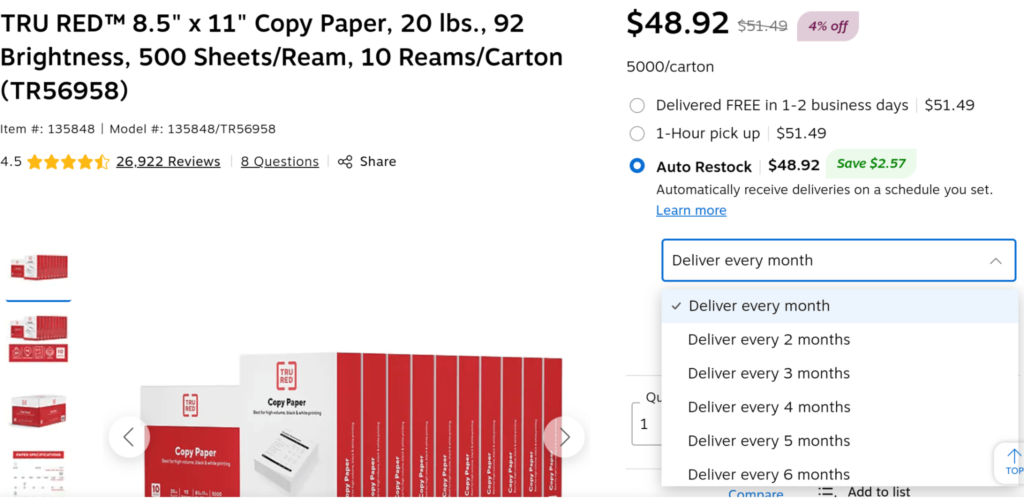
Converting your B2B products into subscriptions doesn’t just let you build predictable revenue and boost customer loyalty but can also considerably reduce your churn rate.
You can also design a curated subscription experience for your B2B buyers. Staples, for example, asks its users to fill in their custom needs. And based on their needs, Staples designs a customized, unique subscription delivery for them: (B2B businesses typically don’t see the kind of sales volumes that B2C businesses get, so such a personalized model is also practical.)
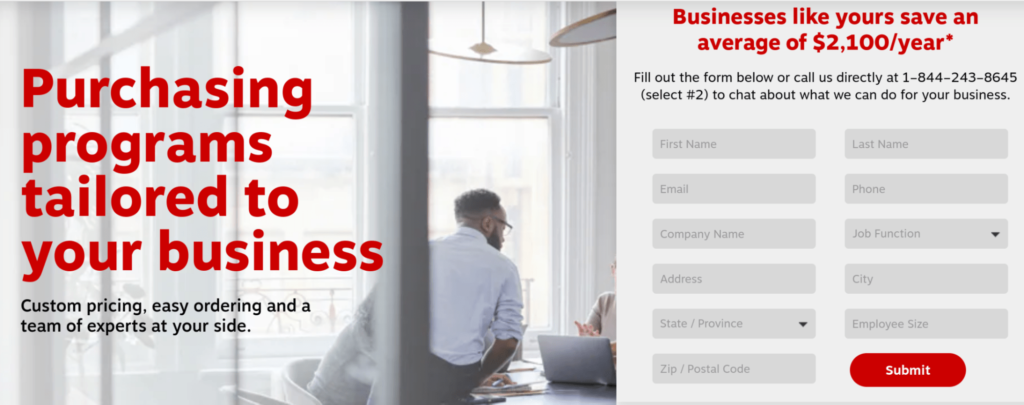
You can even add a membership store to your B2B sales mix. Staples does this as well:
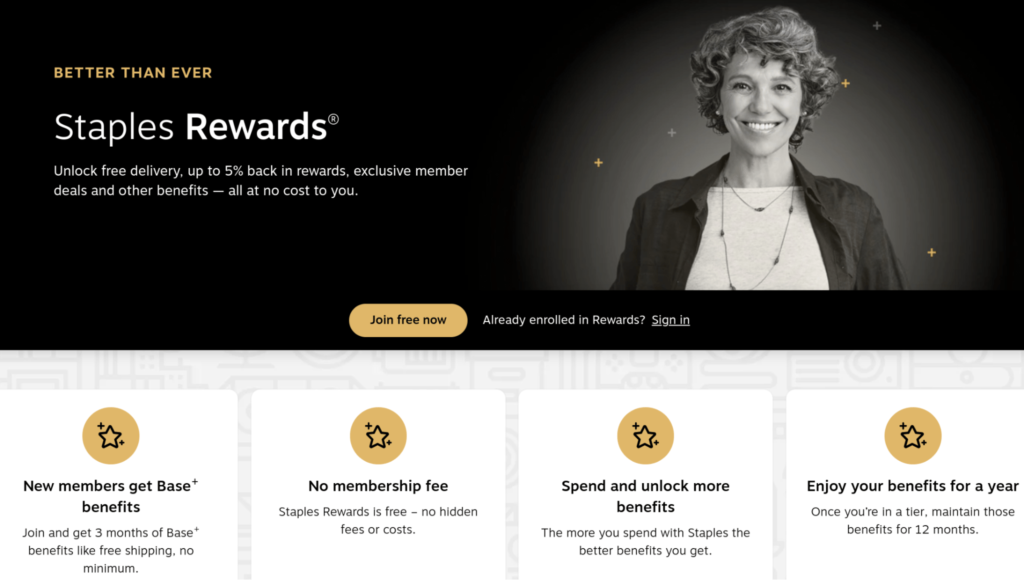
Autoship Cloud covers all these use cases. So even if you’re into B2B, Autoship Cloud is all you need to deliver bespoke B2B subscription experiences.
Want even more ideas for product subscriptions? Check out A Year of Boxes – a website that lists product subscriptions in over two dozen categories.
Now that you know the product subscriptions that sell, let’s see how you can convert your regular products into replenishment, curtain, and access subscriptions that your shoppers can subscribe to via your WooCommerce store.
Step #1: Sign up for a QPilot account
QPilot is a subscription engine that brings subscriptions to eCommerce platforms like WooCommerce that don’t support subscriptions by default. Autoship Cloud is QPilot’s WooCommerce subscriptions solution (plugin). So before you download the plugin, you need to create a merchant account with QPilot.
QPilot’s subscription plans start at $49/month, but you get a free (two-week) trial. Sign up for a trial account here.
Step #2: Download Autoship Cloud
After creating a QPilot merchant account, head straight to WordPress.org and download Autoship Cloud. (Autoship Cloud is a free plugin. The only charges you pay are toward your QPilot plan.)
Once you’ve downloaded the Autoship Cloud plugin, you need to connect it with your QPilot merchant account. To do so, return to your QPilot dashboard and get the client ID and the key that you got while signing up.
Watch this video for the steps:
Or follow this tutorial.
Step #3: Setting up subscriptions with QPilot’s Autoship Cloud
Using QPilot’s Autoship Cloud, you can set up all kinds of subscriptions on your WooCommerce store.
Setting up replenishment subscriptions on your WooCommerce store
If you sell consumers goods that need frequent restocking, you’re looking at replenishment subscriptions. By converting your products into subscriptions, you can save your visitors from visiting your store, adding items to their cart, and doing the checkout each time they want to refill. With subscriptions, they can put this process on autopilot.
Amazon’s Subscribe and Save schemes are but replenishment subscriptions. Luckily with Autoship Cloud, you can turn all your products (both simple and variable) into subscriptions with just a few clicks and offer Amazon-like subscriptions for them.
Here’s a WooCommerce store selling a consumer product as both a one-time purchase and as a subscription:
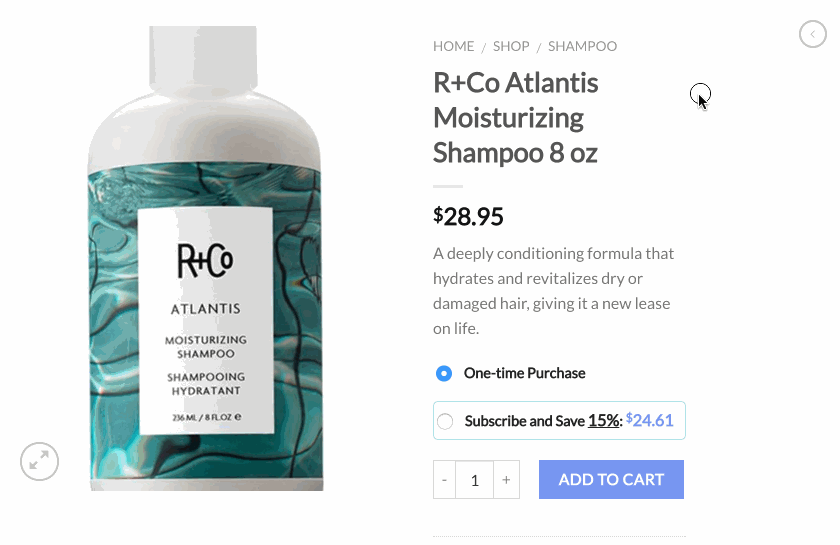
| Also read:Setting up simple product subscriptions with Autoship Cloud.Setting up variable product subscriptions with Autoship Cloud. |
Setting up curation subscriptions on your WooCommerce store
If you’re into selling products that people like variety in — this is pretty much everything from coffee, apparel, and cosmetics to collectibles, stationery supplies, and spiritual kits — you can consider setting up a curated box WooCommerce website.
Here’s a complete tutorial on how you can set up a curated subscription retail service website with WooCommerce and Autoship Cloud: (This tutorial uses a mealbox example, but your developer can easily repurpose it to create a subscription service of any kind.)
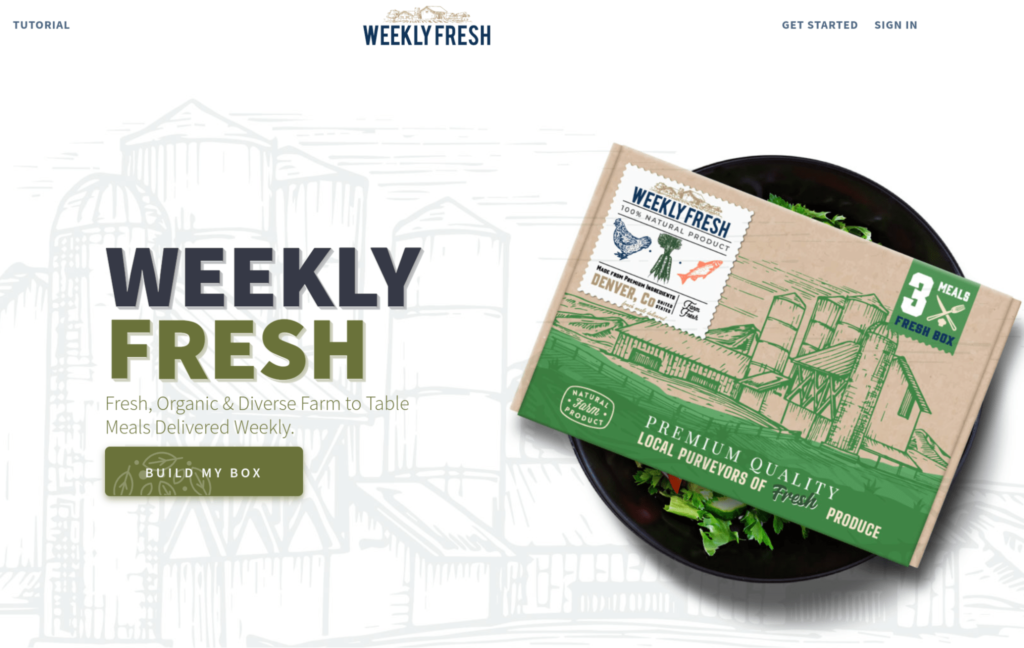
Setting up access subscriptions on your WooCommerce store
Incentives like free shipping, additional discounts, and free samples are the key drivers for selling access subscriptions. With Autoship Cloud, you can easily design even the most complex incentivizing schemes to reward your subscribers and create such subscriptions.
If you need guidance on implementing access subscriptions or setting up an access-only subscription store, reach out to our support team, and we’ll help you through the process.
Access subscriptions/memberships are often sold along with subscribe and save plans. Think Amazon offering both subscribe and save options while offering additional discounts to Prime members. You get the drift.
Below you have a WooCommerce store running a subscribe and save scheme via Autoship Cloud while also selling memberships with additional perks:
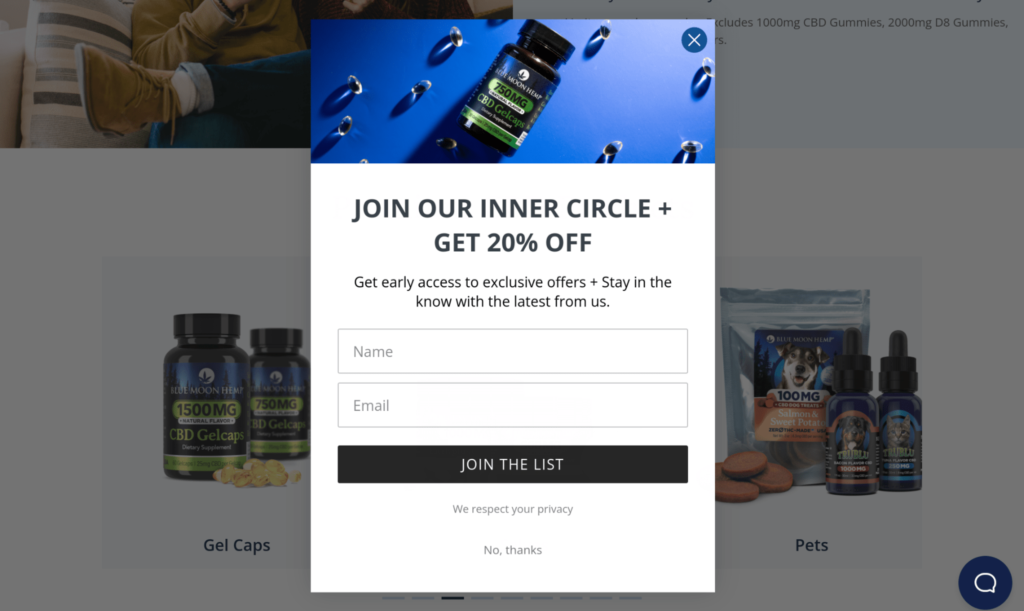
Autoship Cloud is subscriber-friendly, too.
Users can access their subscription details easily inside their My Account section. Also, with its subscription management tools, Autoship Cloud lets your subscribers manage their active subscriptions, including changing their payment method, updating their credit card details, and pausing their billing cycle (subscription):
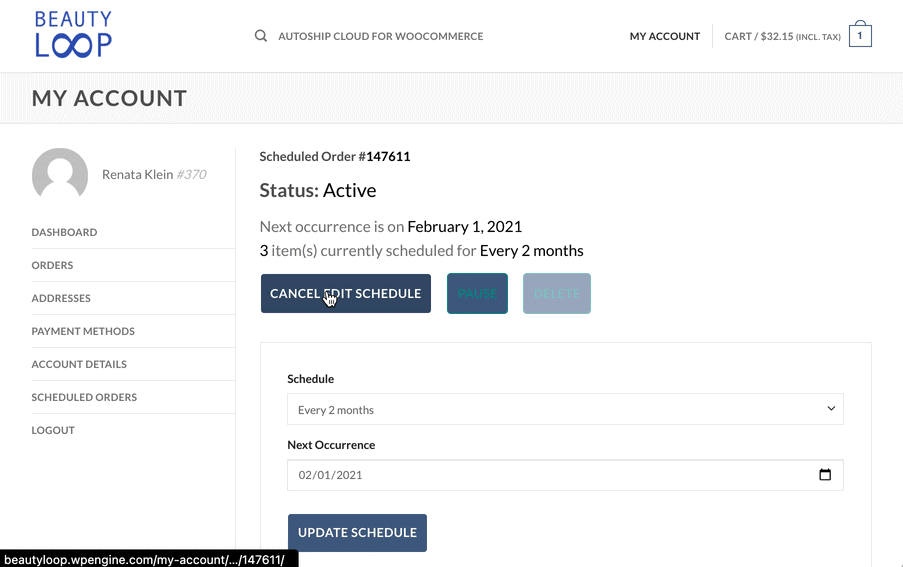
Wrapping it up…
So there you have them: Ten of the best-selling retail product subscriptions.
If you happen to sell any of these physical products, introducing subscriptions or pivoting to a subscription model can be a natural progression for you. Plus, with a subscriptions solution like QPilot, you don’t even need to invest thousands of dollars into custom coding or put together dozens of add-ons to get all the functionalities you need. Just sign up for a QPilot account, and for just $49/mo, you can run a robust WooCommerce subscription store. QPilot-powered Autoship Cloud is the most-complete subscription solution for WooCommerce. As you just saw, with Autoship Cloud, you can:
- Set up replenishment subscriptions on your store by adding Amazon-like Subscribe & Save options in addition to your one-time purchase options.
- Create curated subscription services or boxes. (Did you know our customers are able to set up a custom WooCommerce subscription box website in just two weeks?)
- Build an access-based subscription store and offer exclusive perks to your subscribers or sell exclusively to them.
Sign up for a free QPilot (Autoship Cloud) account now and start converting your customers into lifetime subscribers. You get a fully-featured two-week trial period.
Upgrade to Autoship
When it comes to setting up subscription products on WooCommerce, Autoship Cloud is the only plugin you need.

